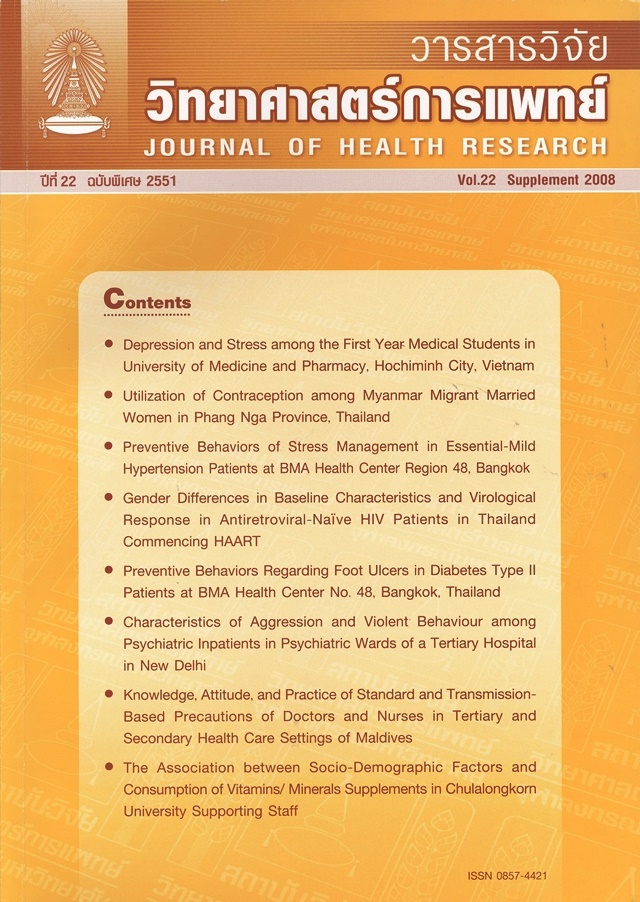Knowledge, Attitude, and Practice of Doctors and Nurses in Tertiary and Secondary Health Care Setting of Maldives
Keywords:
KAP, Standard Precautions, Transmission-Based Precautions, Tertiary and Secondary Care HospitalsAbstract
Compliance with infection control practices relating to health care associated infections is a major public health concern. The aim of this study was to assess the level of knowledge, attitude, and practice of standard and transmission-based precautions among doctors and nurses in secondary and tertiary health care settings of Maldives. This was a cross-sectional survey conducted in 2008. A self-administered questionnaire used was based on different components of standard and transmission-based precautions. Participants from three different health care settings included 70 doctors and 124 nurses. Each health care facility was observed for standard and transmission-based precautions practice. The analysis of correlation between ‘attitude’ and ‘practice’ discovered a direct significant association at the level 0.01 (r=.412). No significant correlation between knowledge and practice was found (r= -.001), however the relationship tend to be negative. A marginally significant association was found between training precautions practices with a p value of 0.92. The significant association also was found with ‘marital status’ and ‘practice’ with a p value of 0.002. Based on the observed inference standard and transmission-based precaution was not optimum in the 3 hospitals surveyed. Improved performance of practice associated with better ‘attitude’ is quite plausible. The weak negative correlation found between knowledge and practice signifies that increase in knowledge decreased performance of practice. This does not mean that knowledge does not play a role in practice. There might be other factors within the individual and at organizational level that may disrupt the application of knowledge in practice. Usually those who are married will have more responsibilities and family conflicts which can affect their work practices. Hence those who stay single can demonstrate better performance.







